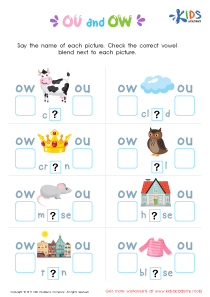Reading comprehension Normal Long And Short Vowel Worksheets for Ages 4-5
5 filtered results
-
From - To
Enhance your child’s reading skills with our Reading Comprehension Normal Long and Short Vowel Worksheets for ages 4-5. Designed to make learning both fun and educational, these worksheets introduce young learners to the foundational concepts of phonics. Through engaging activities, children will distinguish between long and short vowel sounds while practicing reading simple words and sentences. Ideal for early readers, our interactive exercises aim to boost confidence and comprehension. Perfect for both classroom and home use, these worksheets serve as a wonderful resource in your child's early literacy journey. Start nurturing a love for reading today!
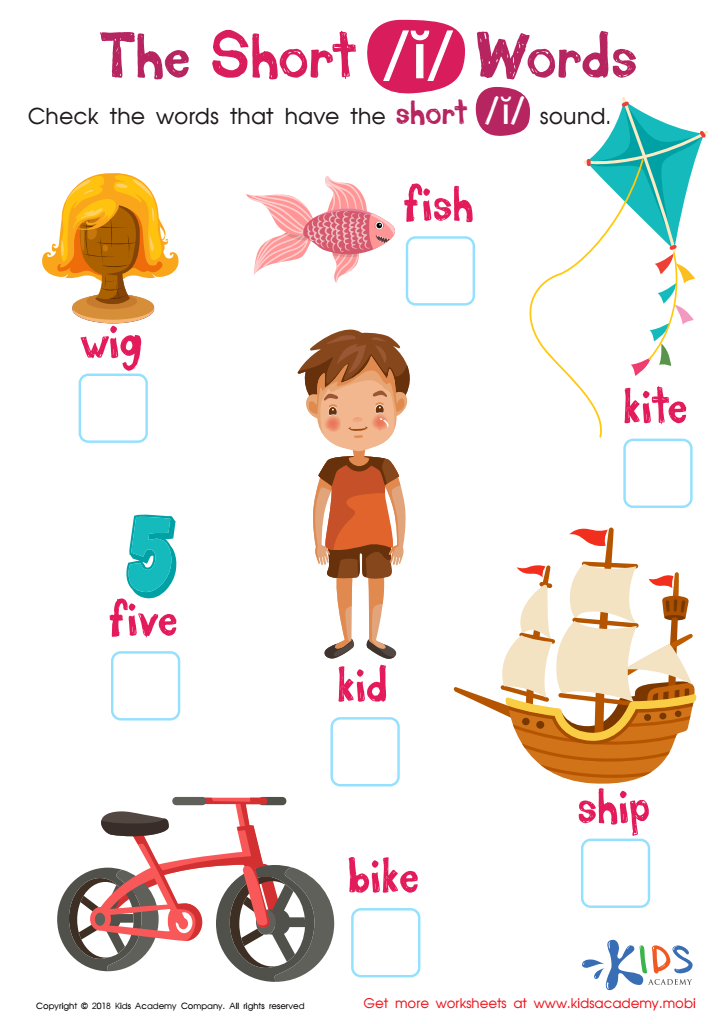

The Short I Words Reading Worksheet
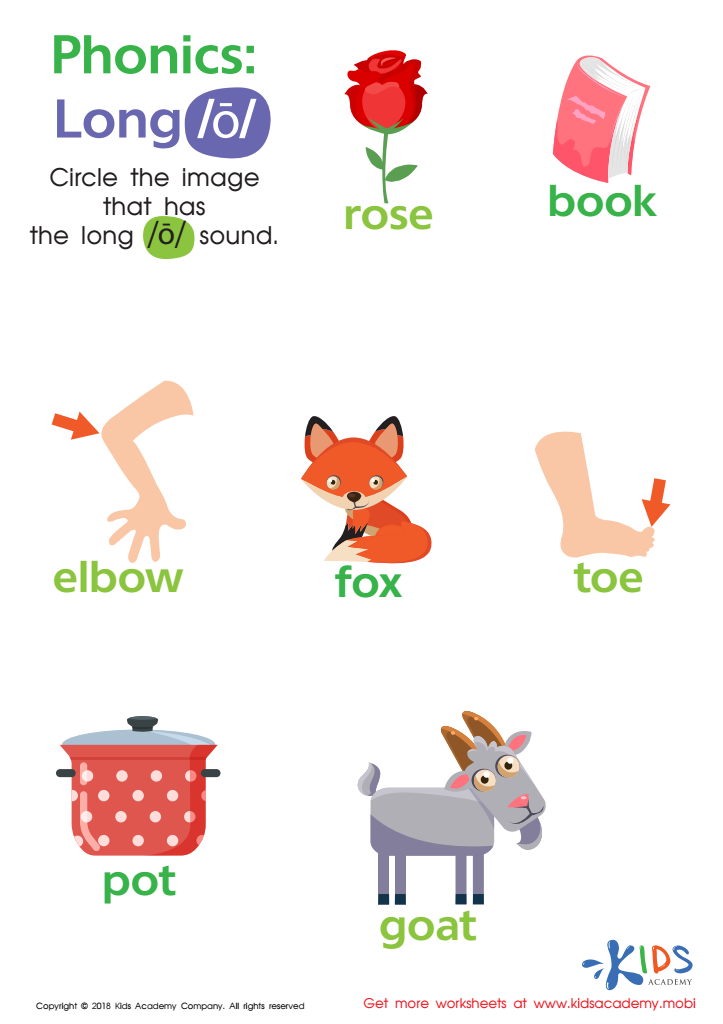

Phonics Long O Reading Worksheet
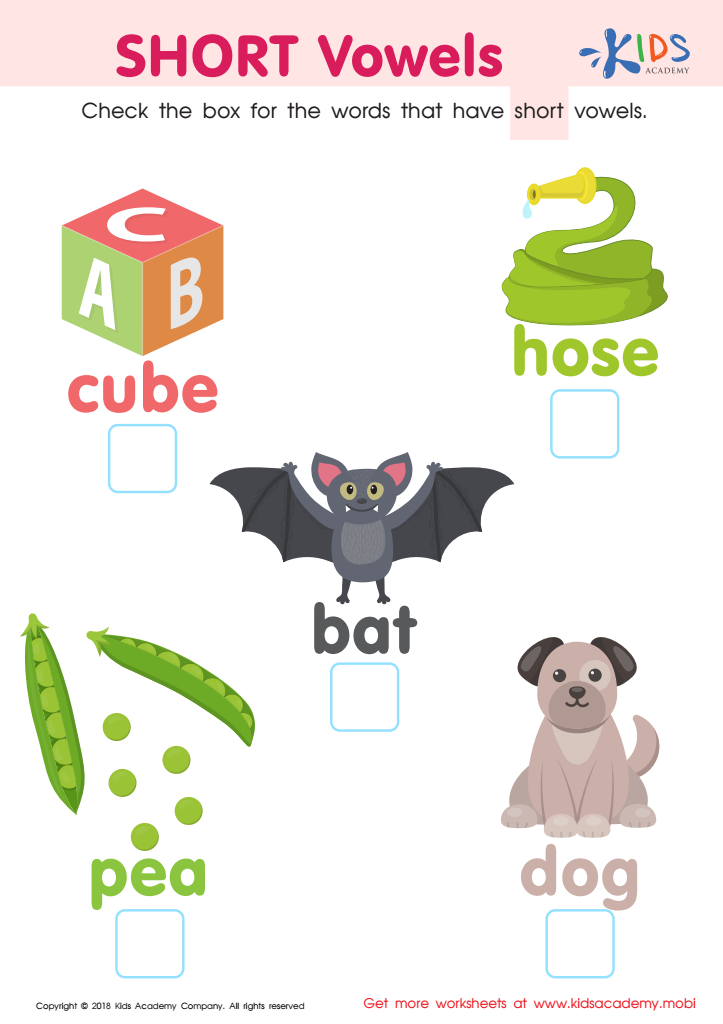

short vowels Worksheet
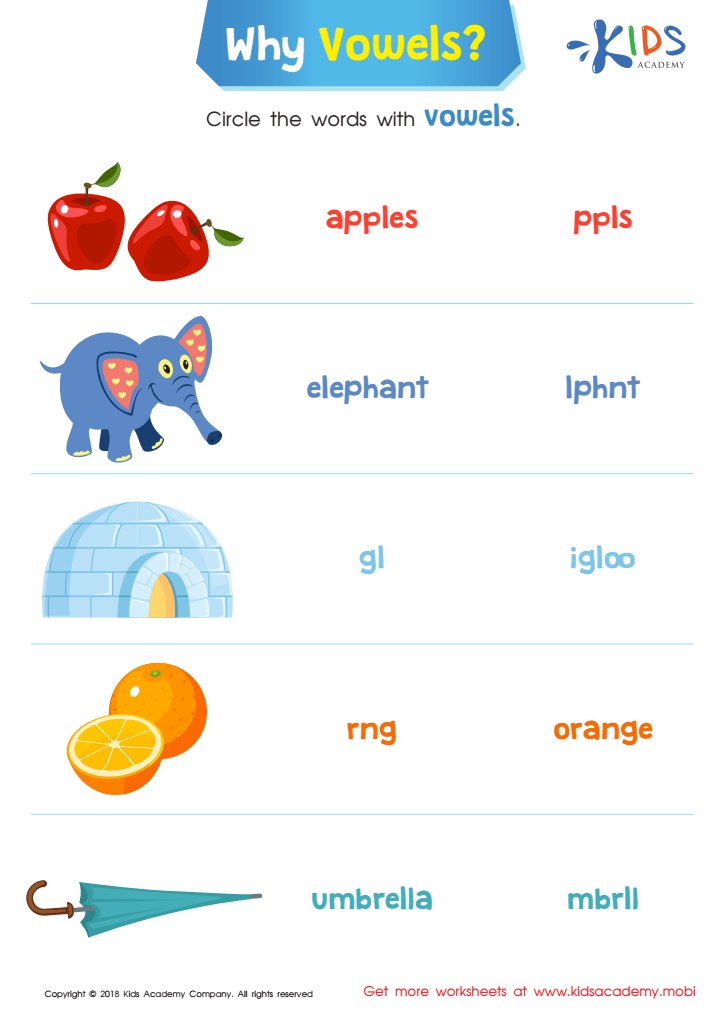

Why Vowels? Reading Worksheet
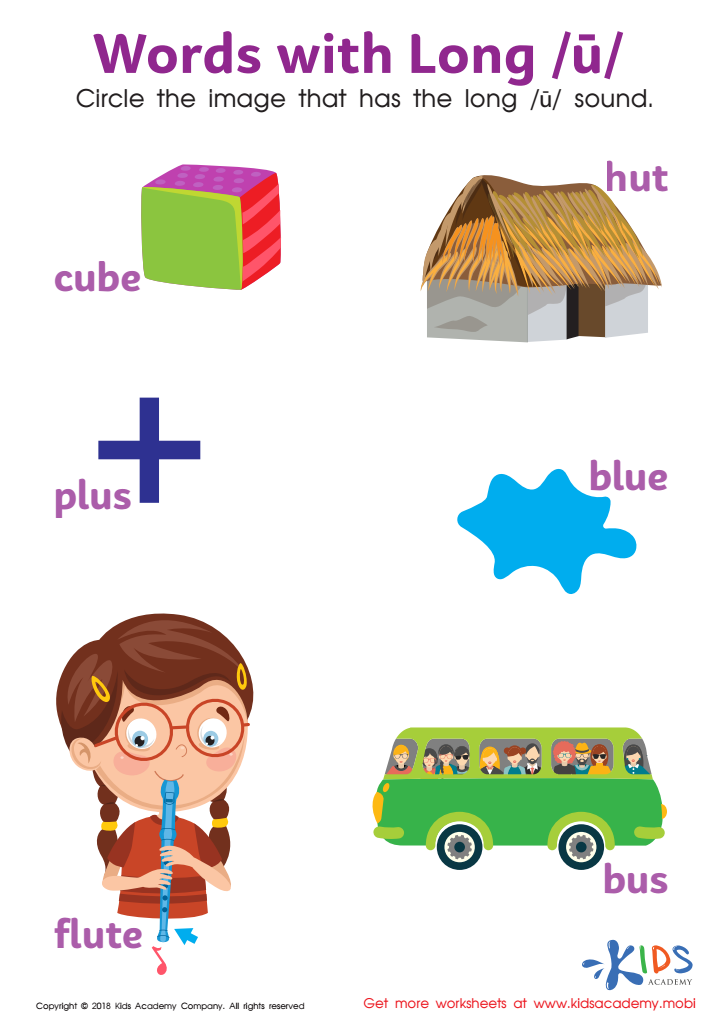

Words with Long U Reading Worksheet
Parents and teachers should care about reading comprehension and recognizing normal, long, and short vowels for children ages 4-5 because these skills form the foundational building blocks for literacy development. At this critical age, children's brains are exceptionally receptive to language acquisition. Developing a strong understanding of vowels—both long and short—enables children to decode words more efficiently. This decoding ability is crucial for reading fluency, which directly impacts comprehension.
Reading comprehension is not just about recognizing words; it involves understanding and processing the meaning behind text. By grasping how vowels function differently in words, children can better predict and decipher words they encounter, strengthening their ability to read independently. This fosters greater confidence and a love for reading, which is essential for lifelong learning.
Furthermore, early comprehension skills are linked to overall academic success. Proficiency in reading enables children to excel in other subjects, including math and science, as these subjects often require good reading skills to follow instructions and solve problems. Inculcating these skills early helps ensure that children do not fall behind, promoting educational equity.
In short, focusing on reading comprehension and vowel sounds in early education equips children with the tools they need for academic success and fosters a positive, enduring relationship with learning and reading.
 Assign to My Students
Assign to My Students








